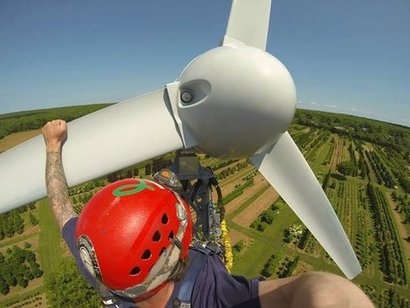
“The Great Leap Forward” report released today (16th November) draws on interviews with experts from across the wind industry. It says that, in an industry obsessed with asset performance and marginal gains, companies invest too little in human skills that help projects run optimally, or they instead invest in training methods that are ineffective.
In parallel, a majority of companies continue to invest heavily in the use of digital technology to optimise mechanical assets. Amid growing pressure to run leaner projects, it is digitalisation that dominates when operators look at ways to increase profit margins. Companies are more concerned with finding ways to design humans out of their processes – via artificial intelligence and automation – than improving the skills and decision-making of the individuals at all levels in their teams.
The report proposes that optimised human performance and decision-making can, if nurtured, act as a catalyst for increased availability, less turbine downtime, safer colleagues and fewer organisational silos.
It comes as power sector consultancy ARMSA launches its new ARMSA Academy venture, a provider of safety-led performance support to wind professionals. ARMSA Academy’s digital performance support platform offers operators a new approach that uses technology to improve the performance of their staff at all stages of the project life cycle.
“Conventional training approaches safety as an input; a cost of doing business” said Rakesh Maharaj, Managing Director of ARMSA Consulting. “But we know that safety is an outcome of decision-making, and as such, is a lead indicator of good business performance. The daily decisions taken at all stages of the project life cycle have an impact on the safety and financial performance of projects. ARMSA Academy’s platform, accessible at the touch of a button, empowers individuals to cross reference those decisions, ‘in the flow of work’, against best practice and their industry peers. It’s an end to decision-making in a void.”
ARMSA Academy’s programmes challenge decision-makers to consider consequence before action at all stages of the project lifecycle. The platform goes beyond the conventional and mechanical daily checklist, or the agreed set of safety procedures, by instilling a mindset of individual accountability, cross-functional integrity, performance optimisation and applied human intelligence.
All trialists to have used the platform so far agreed that digital performance support can help the wind industry to further reduce levelised costs in both construction and operation.
“It’s exciting to be launching a new approach to skills development that fits, hand-in-glove, with the challenges the global wind industry itself acknowledges” added Khalida Suleymanova, Director of ARMSA Academy. “It’s my own view that workflow learning represents the future of skills development in most industries and especially those chasing ever-leaner projects, as with wind power. But the theory is only as good as the tools that enable it. Our digital performance support platform is based on extensive research, as well as over a decade of direct experience promoting a philosophy of informed decision-making in the global wind industry. We’re confident it will help wind professionals to embrace active problem solving, making classroom learning a thing of the past.”
For additional information:

